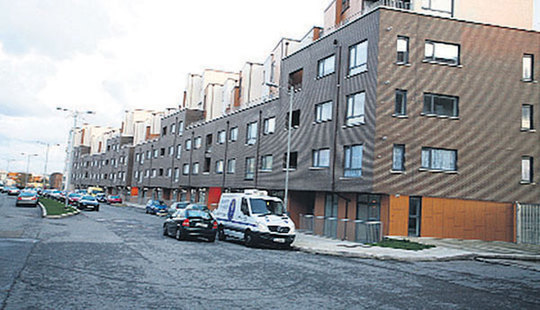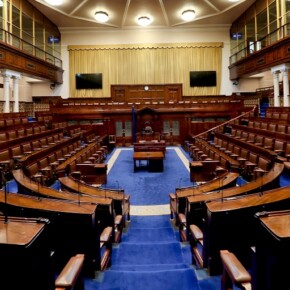Priory Hall is ‘tip of iceberg’
Dublin People 07 Mar 2015
BREACHES of fire safety regulations at developments such as Priory Hall appear to be just the
“tip of the iceberg
?, an organisation representing members of the emergency services has warned.
The Irish Fire & Emergency Services Association (IFESA) has called on the Minister for the Environment, Alan Kelly, to take urgent action to address its serious concerns for the safety of its members and those living in substandard housing developments.
In a strongly worded statement, IFESA president John Kidd said the
“failures
? in the Irish Fire Services have again been exposed by the latest concerns on fire safety standards in buildings.
“These latest failures expose again the crisis at the heart of management of the Irish Fire Services,
? he claimed.
“IFESA’s previous warnings on fire safety standards have been ignored.
?
Mr Kidd said his organisation had warned that the problems exposed at Priory Hall in Donaghmede and Belmayne in Clongriffin, as well as in a number of developments in south and west Dublin, appeared to be just the
“tip of the iceberg
?.
“The apparent deficiencies that seem to exist in the construction of buildings throughout the country are causing major concern for fire safety standards for the residents in these buildings,
? he stated.
“We now see yet another major development, Longboat Quay in Dublin, failing to meet fire safety standards.
?
Mr Kidd said the IFESA fears there are many more properties around the country which are not up to standard.
He added:
“We believe the full extent of the problem has yet to be fully exposed as it will show just how poor the enforcement and policing of fire safety standards and regulation are. The scale of the problem will raise many awkward questions for those charged with enforcing and policing fire safety standards, including county managers, city managers, the Department of the Environment, Community and Local Government and chief fire officers.
“The issue of fire standards is just another example of the systemic failure in the processes in place in the Irish Fire Services – from fire prevention to the provision of fire cover.
“Our genuine fear is that these deficiencies will cost the lives of citizens of this country and of firefighters.
?
Mr Kidd also claimed there had been a dramatic reduction in the number of fire prevention office positions in Dublin, despite recommendations in the Stardust Tribunal report that staffing in this area be increased. The IFESA stated that improvements made since the 1981 nightclub tragedy have since been negated by cuts.
In response to the IFESA’s statement, the Department of the Environment, Community and Local Government said there had been no reduction or impact on staffing numbers in the Fire Brigade, despite the embargo on the filling of public service posts introduced in 2009.
A spokesperson for Minister Alan Kelly pointed out that it was a matter for the Dublin City chief executive, in the first instance, to arrange to have an appropriate balance of staff for fire prevention, fire protection and response activities.
In relation to the safety of housing units, the spokesperson referred to the Building Control (Amendment) Regulations 2014, which came into operation one year ago. He said the regulations greatly strengthen the arrangements in place for the control of building activity.
“In particular, the regulations empower competence and professionalism in design and construction and require greater accountability in relation to compliance with Building Regulations, including the fire safety requirements,
? he said.
The Department of the Environment believes that the regulatory framework now in place represents a
“reasonable and appropriate response
? to the many building failures that occurred in the past decade and will lead to improved quality within the construction sector.
“Compliance with the statutory requirements that apply to a building, or works in relation to a building, is first and foremost a matter for the owners, designers and builders concerned,
? the spokesperson added.
“Responsibility for enforcement is a matter for local authorities who have extensive powers of inspection and enforcement under the Fire Safety Act 1981, the Building Control Act 1990 and the Planning and Development Acts, all of which may be relevant in relation to fire safety arrangements in both domestic and commercial buildings.
“The Department has urged local authorities to use the powers that are available to them wherever reasonable and appropriate to do so.
“As a final point, it should be noted that the guidance on fire safety standards in the Building Regulations (i.e. Part B) is currently under review. It is expected that draft revised guidance will be issued shortly for public consultation.
?
When asked to comment on IFESA’s statement, Dublin City Council referred the matter to the Fire Brigade who were not in a position to respond by the time of going to press.











